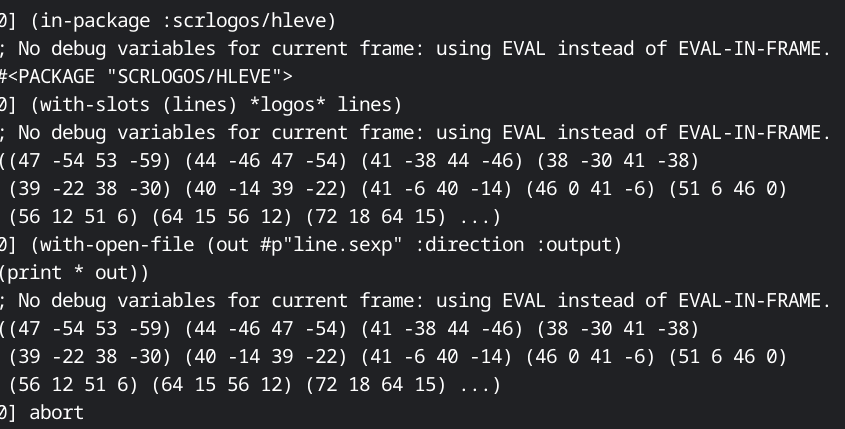The language of the output.
A segment of the generated squiggle.logos is
(COM-SET-PHI 170) (COM-SET-PHI 170) (COM-SET-PHI 140) (COM-FORWARD) (COM-SET-PHI 140) (COM-FORWARD) (COM-FORWARD) (COM-SET-PHI 110) (COM-FORWARD) (COM-SET-PHI 110) (COM-FORWARD) (COM-FORWARD)
Undo, jump, tail-up/tail-down, changing angle and step increments should also be preserved in more interesting vector scripts, but might clobber a custom rescaling. This is an initial prototype.
The reason it's like this is that this is what I got for doing 0 work or thinking from mcclim (just saving clim commands before executing them).
Edit: Writing the line s-expressions
This is converted to 4-tuples for lines by scrlogos using context like step-len, angle-inc and turtle-x, turtle-y.
Currently you would save the currently realized 4-tuples out of the application-frame yourself, ie C-c in the do-you-want-to-quit prompt
(in-package :scrlogos/hleve) (with-open-file (out #p"line.sexp" :direction :output) (with-slots (lines) *logos* (print lines out)))

(Hang on I need to check that's the current code) (yes it was, but this is an Advanced Lisp User Feature at the moment)

